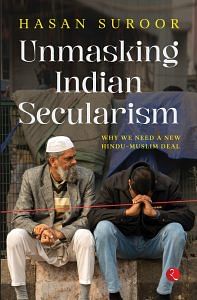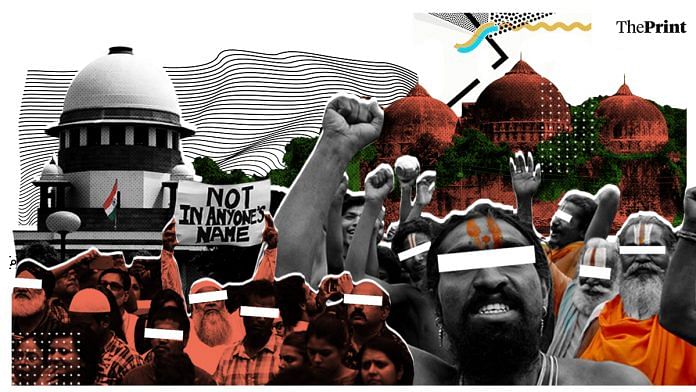A series of reflections by public intellectuals in the past few years suggest that Indian secularism is dying a slow death, or, at least, it has ceased to exist in its spirit in state–society transactions, election campaigns, inter-community relations, public policies, and, perhaps what is more worrying, legislation judicial interventions and verdicts. This gradual de-secularization of everyday life, we are informed, has raised questions about India’s claim as a democratic nation committed to equality and social justice for all of its citizens. This concern is not to be taken lightly. Something exceedingly prized is at stake here: our capacity as human beings to understand the other, care for them and strive for their overall well-being.
Secularism emerged in Europe because of the way the unholy alliance between the church and the state was suffocating public life. It was a response to excesses committed, not merely in the name of religion, but of religion itself. India’s experience with religion, however, has been very different. We have not had a single ruler imposing a state religion. Our history, as opposed to Europe’s, does not make us sceptical about religion’s role in public life. Indian secularism—committed to freedom, equality and protection of every citizen’s fundamental rights—emerged amidst deep religious diversity against the backdrop of horrific Partition violence. Although the word ‘secular’ was added to the Preamble of the Constitution only in 1976, India’s allegiance to secularism goes back much further. Even during the colonial rule, a blueprint of Indian secularism was taking shape. Late 1930s onwards, the mainstream nationalist politics represented by the Congress party, responding to untouchability, women’s rights and worrying state of Hindu–Muslim relations, took an inherently secular position. By declaring their principled opposition to both intra and inter-religious domination, leaders like Jawaharlal Nehru sought to pitch a secular politics that aspired for social freedom.
Notwithstanding its inspiring history and indubitable uniqueness, why has Indian secularism not succeeded in bringing various communities together, more specifically Hindus and Muslims? For all the talk about our composite culture—the so-called Ganga–Jamni tehzeeb and shared histories, etc.—the fact is that the two communities remain apart, and that is a clear failure of Indian secularism. A number of reasons are offered for this, but what stands out is the state’s sheer disinterestedness in promoting secularism. Many Indians are not even aware what secularism really means with the word ‘secular’ mostly seen as being antireligion, and opposed to traditions and social customs. Think of remarks such as ‘Zyada secularpana na jhaado [Don’t throw around this secular attitude]’, ‘Dher secular na bano [Don’t play secular with me]’, or ‘Zyada secular ho gaye ho [You have become too secular]’, in response to anything that suggests an open-mindedness resulting in ‘deviance’. Very often, someone who stops following religious obligations or becomes somewhat irregular in that respect is immediately called secular, rather than agnostic. Needless to say, in a country like India, where almost every domain of human activity is touched by religion, a misconception of this kind is bound to have serious repercussions.
Also read: Bhagat Singh, Hedgewar, Lankesh — how Kannada school texts have become ‘ideology battleground’
For quite some time now, Indian secularism has been primarily looked at from the vantage point of state–society relations. In that respect, we have been more focused on the ins and outs of a secular state. However, given the rise of communal hatred and violence in recent years, it is, perhaps, desirable that we look at secularism in terms of inter-community relations. In doing so, we will be able to shift our focus from secular state to something that is much more promising—secular society.
Focusing on Indian secularism solely from the vantage point of inter-community relations, how do we make sense of relations between Hindus and Muslims, something that has got much worse in recent years? Hindus constitute around 79 per cent of India’s population whereas Muslims are approximately 15 per cent. Given how phenomenally one outnumbers the other, ideally speaking, there should not have been any rivalry between the two. However, there remain strands of history and expressions of culture that are invoked every now and then to pitch one in hostile opposition to the other. Attempts by Right-wing Hindu nationalists to portray one as the political, cultural and historical ‘other’ have had astounding electoral success.
So how do we make sense of this growing antagonism between the two communities, this growing feeling that the interests of one are in absolute opposition to the other? More than anything else, it is to do with absence of trust and faith in each other. Each is fearful of the other. However, are we to treat the fear of both the communities alike? The fear of 15 per cent of a society cannot be treated at par with the fear of the dominant 79 per cent. It is, however, common and must be our starting point if a principled secular living is to be attained. For example, the fear among Hindus that Muslims will wipe out their community is plainly unfounded. But, in the current political climate, it is harder to dismiss Muslim fears about a surge in populist Right-wing Hindu politics based on hostility towards minority rights.
Also read: Govt, court and Muslims must accept Hindu claim on Gyanvapi to avoid repeat of Ayodhya 1992
The truth is that the future of Indian secularism is in the hands of the Hindus, for the simple reason that they form the majority and hold the levers of power—just as in a Muslim-majority country, the buck stops with Muslims. Only Hindus can save the idea of a pluralistic and tolerant India from becoming a casualty of a narrow sectarian politics. If Hindus could do their part we could achieve what Dr. B.R. Ambedkar called ‘an associated mode of living’. The alternative—the unchecked rise of majoritarianism—leaves Muslims with no other option but to simply accept their status as second-class citizens in the interest of their safety and protection. Meanwhile, the growing political alienation among Muslims is an issue that lies outside the ambit of secularism. Muslims are demanding that they should be recognized as Muslims. It is a call for a very different kind of knowing and understanding, one that is strikingly transformative. In embarking on this transformative understanding, Hindus can educate the rest of the world in what secularism and democracy can offer to the modern world.
To be sure, the progress report of Indian secularism is not satisfactory. We stand at the cusp of one of the most defining moments of our nationhood, and where we go from here depends on whether we are willing to rise above manufactured animosities and invest in an ethically informed understanding of the other, or embrace sectarian populism. But, then, the choice need not necessarily be binary and should not keep us away from what Jacques Derrida beautifully phrased in his book The Politics of Friendship as the ‘radical experience of the perhaps’. Perhaps, it will all end well, finally.

This excerpt from ‘Unmasking Indian Secularism’ , edited by Hasan Suroor has been published with permission from Rupa Publications.



